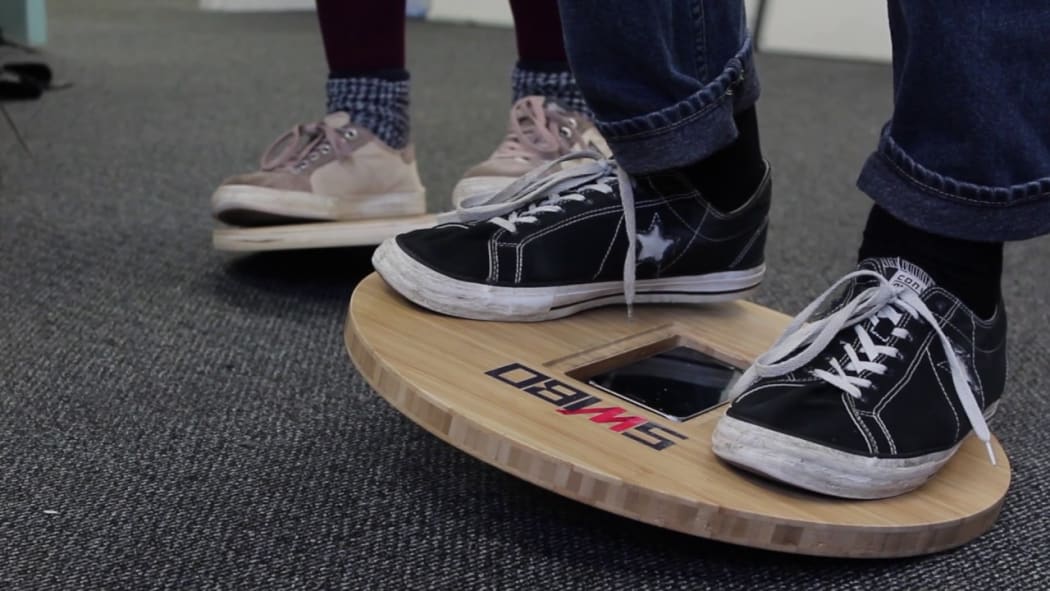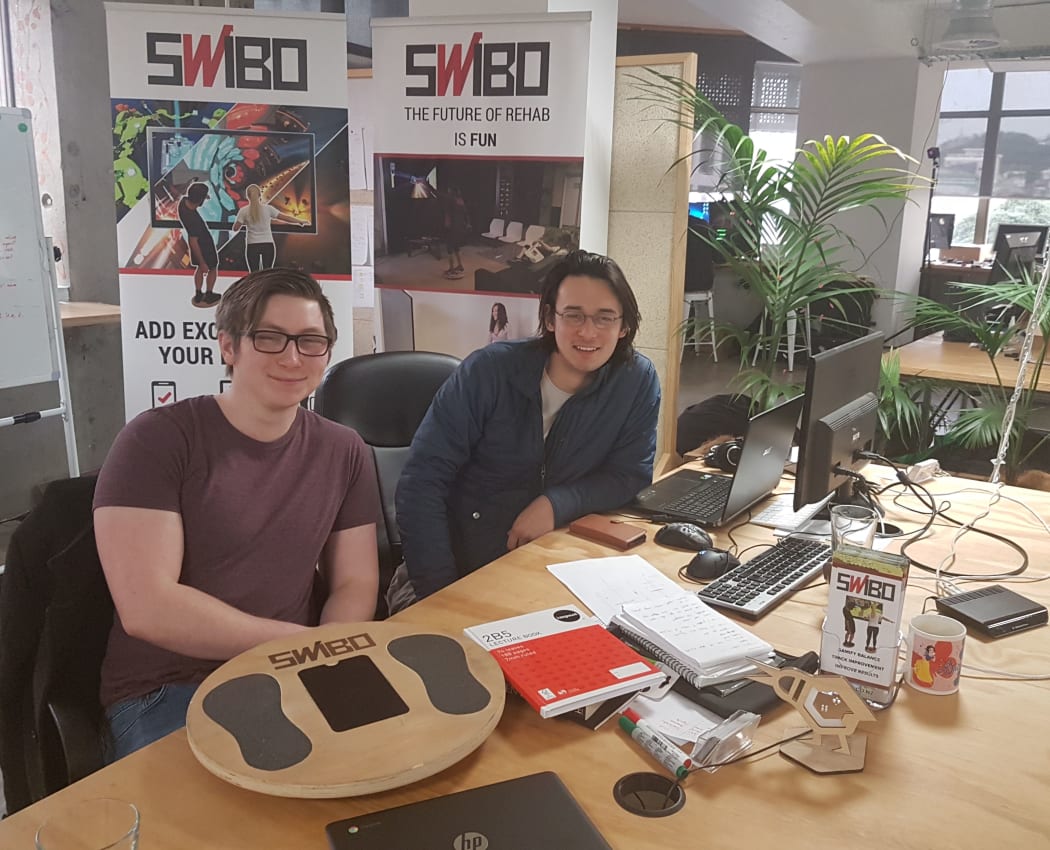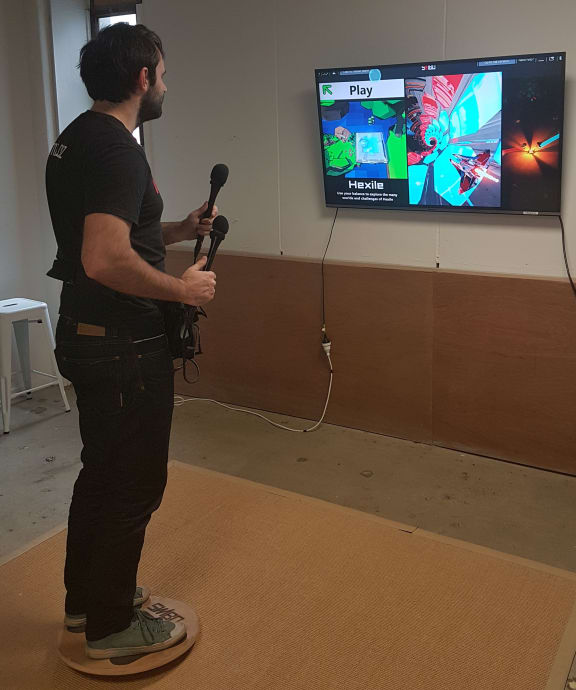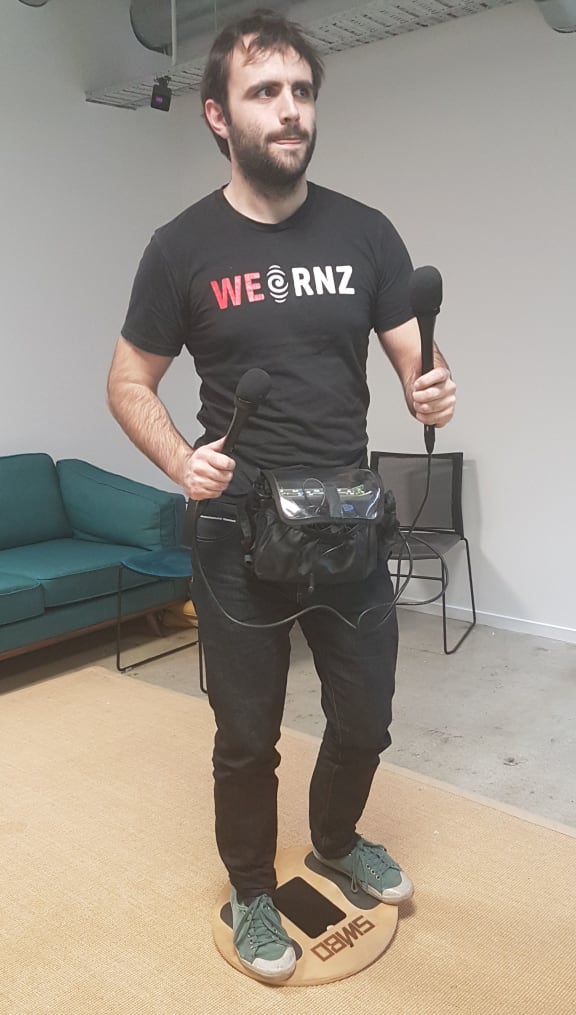Going to the physiotherapist usually entails a bare-faced lie that, yes, you did do all of the exercises the physio recommended at your last appointment.
Some studies have found non-compliance with physiotherapy exercise regimes could be as high as 70 percent. It is not hard to see why, as these exercises are usually fairly repetitive and boring.
So, back in 2014 Ben Dunn and some other students got together at Victoria University of Wellington’s Entrepreneur Bootcamp and came up with an idea to take these boring physio exercises and turn them into video games.

The mobile phone sitting the balance board works as a kind of joystick for the video game. Photo: Swibo
Subscribe to Our Changing World for free on Apple Podcasts, Spotify, Stitcher, RadioPublic or wherever you listen to your podcasts
Fast-forward four years the group have formed a company, Swibo, which sells these physio games to physiotherapy practises all around the world.

Swibo co-founders Ben Dunn and Lukas Stoecklein. Photo: RNZ / William Ray

Producer William Ray multitasks trying out the balance board and recording audio. Photo: RNZ / William Ray
There’s no particularly special technology behind Swibo. All it requires is a computer, a smartphone and a balance board. A balance board is a common tool in physiotherapy used to train lower body strength and coordination.
“Usually a physiotherapist will recommend five to fifteen minutes a day [on a balance board]” says Ben Dunn, who is now the CEO of Swibo.
“That’s more time than most of us are willing to stare at a wall”.
To alleviate that boredom Ben and the rest of the Swibo team came up with the idea of converting the balance board into a controller for a computer game.
“What we’ve done is take the balance board and added an app on a smartphone which measures the movements on the board.”
The smartphone slots into the balance board and turns it into a sort of joystick. Lean forward and your character in a game moves forward, lean back and it goes back.
Personally, I found the games fairly simple but surprisingly addictive.
Ben says they worked with some professional athletes to develop one of the games, Neozen, where you use the board to race a spaceship through a kind of obstacle course.
“Every time we went away and made a different version they wanted it to be harder and faster... It got a little bit out of hand.”

The game Neozen was developed in collaboration with some professional athletes. Photo: Swibo

Producer William Ray in action on the Swibo balance board. Photo: RNZ / William Ray
Swibo have commissioned a study to assess exactly how much using Swibo improves people’s compliance with exercise regimes, but Ben says the anecdotal reports have been positive, both from physiotherapists and patients.
And Ben says Swibo isn’t all about fun; they’ve also found ways to harness the sensor data from the smartphone/balance board combination as a diagnostic tool.
Ben shows me a ‘test mode’ where a therapist can use the Swibo to assess how quickly people are able to shift their weight from one side to another. This can then be used to identify underlying problems.
So far, Swibo only has one product based on balance board exercises which target the lower body. Ben says they are currently experimenting with virtual reality tools to create exercise games for the upper body.
The intention is to provide a suite of gamification tools [so] no matter what your injury, you can go into the physio and get a really fun and exciting way to rehab ... rather than go home and pretend to do those exercises.”

